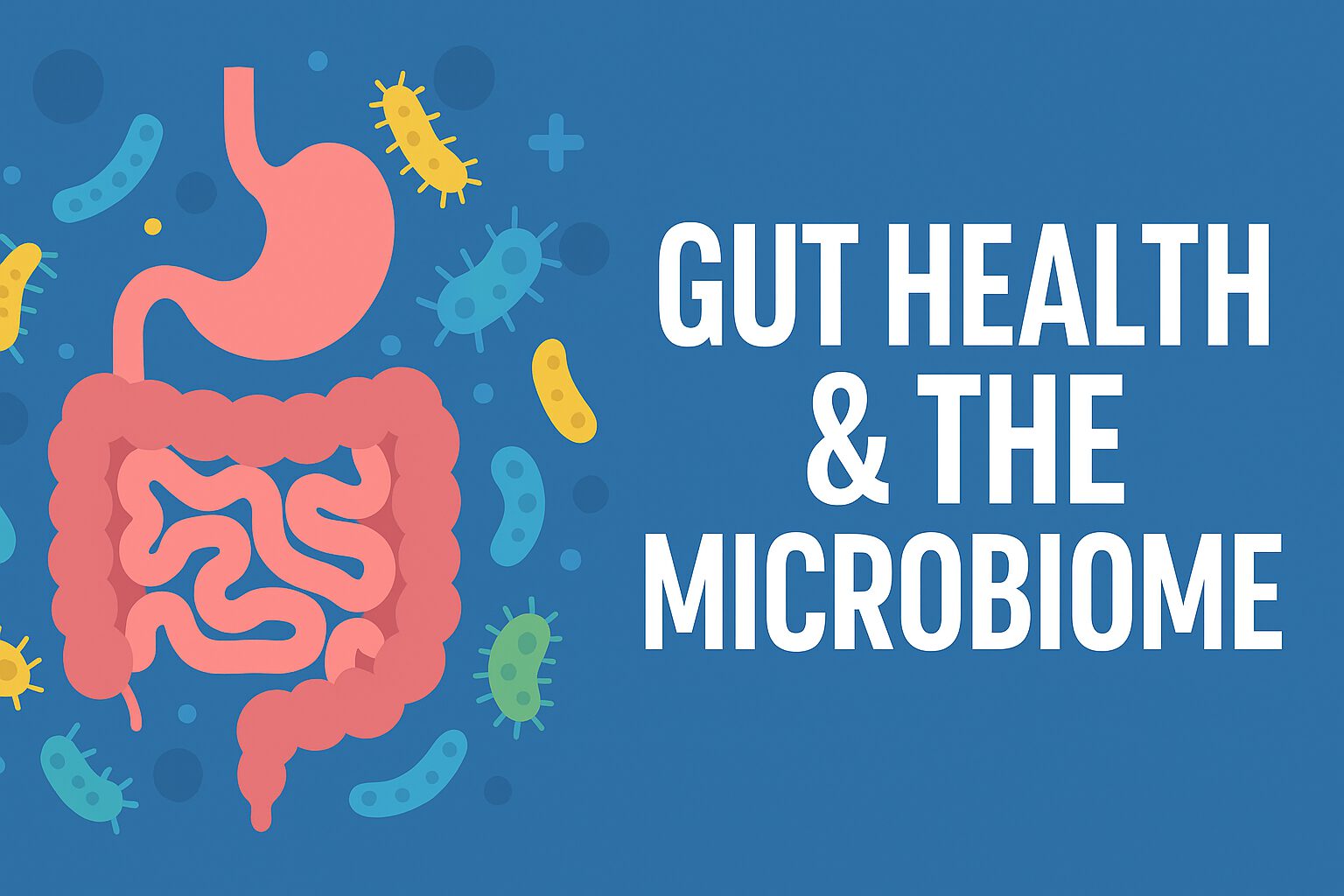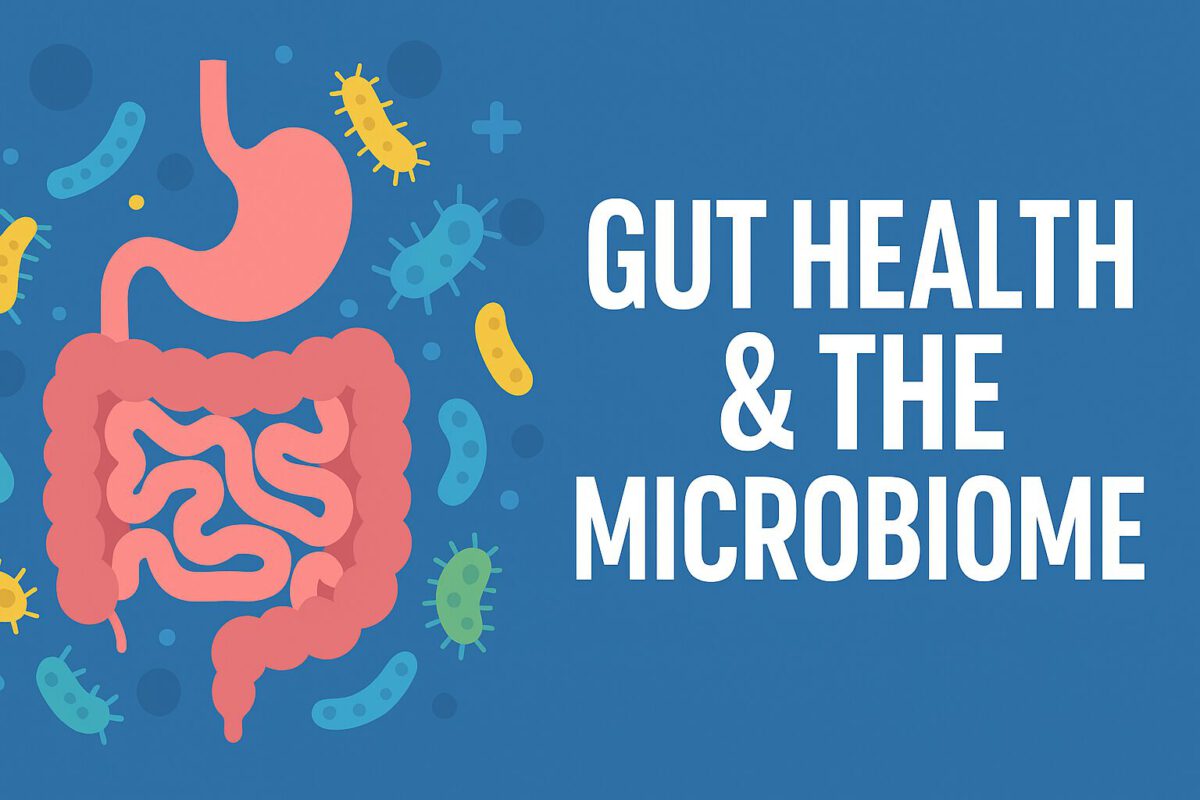The Gut Microbiome: A Key to Health, Metabolism, and Longevity
Introduction
The human gastrointestinal tract is home to trillions of microorganisms, collectively known as the gut microbiome. This complex ecosystem of bacteria, viruses, fungi, and archaea plays a central role in health and disease. Recent scientific advances have transformed our understanding of the gut microbiome, revealing its critical impact on digestion, immune function, metabolic regulation, and even mental health. This article explores the latest research on the gut microbiome, its importance to overall well-being, and actionable strategies to maintain and optimize gut health.
What Is the Gut Microbiome?
The gut microbiome refers to the diverse microbial community residing primarily in the large intestine. These microorganisms coexist symbiotically with the human host, performing essential functions including:
- Fermentation of indigestible dietary fibers
- Synthesis of vitamins such as B12, folate, and vitamin K
- Production of short-chain fatty acids (SCFAs) that support immune and intestinal barrier function
- Modulation of the immune system
- Regulation of glucose and lipid metabolism
The composition of the microbiome is influenced by numerous factors: birth method, early feeding practices, diet, antibiotic use, environment, and genetics. A diverse and balanced microbiome is associated with health, while a disrupted microbiome (dysbiosis) is linked to various chronic conditions.
Microbiome and Metabolism
Emerging evidence underscores the microbiome’s role in metabolic health. Specific bacterial strains help regulate insulin sensitivity, fat storage, and inflammation. Dysbiosis has been associated with:
- Obesity
- Insulin resistance
- Non-alcoholic fatty liver disease (NAFLD)
- Type 2 diabetes
Short-chain fatty acids like butyrate and propionate, produced through microbial fermentation of dietary fiber, have anti-inflammatory effects and improve metabolic markers. Conversely, a diet high in ultra-processed foods and low in fiber can foster harmful bacteria that exacerbate metabolic dysfunction.
Gut-Brain Axis and Mental Health
The bidirectional communication between the gut and the brain, known as the gut-brain axis, involves neural, endocrine, and immune pathways. Gut bacteria influence the production of neurotransmitters such as serotonin and GABA, which affect mood and cognition. Studies link gut dysbiosis to:
- Anxiety and depression
- Cognitive impairment
- Neurodegenerative diseases
Probiotic and prebiotic interventions have shown potential in improving mood and reducing psychological distress, although more clinical trials are needed to establish standardized protocols.
Immunological Function of the Microbiome
Approximately 70% of the immune system is located in the gut associated lymphoid tissue (GALT). The microbiome educates immune cells, maintains immune tolerance, and protects against pathogens. Imbalances in the microbiome are implicated in:
- Autoimmune diseases
- Allergies
- Chronic inflammation
Maintaining a healthy microbiome is therefore critical for immune homeostasis.
How to Support Gut Health
Scientific literature supports several strategies for cultivating a resilient and diverse gut microbiome:
- High-Fiber Diet: Emphasize whole plant foods rich in soluble and insoluble fiber.
- Fermented Foods: Include yogurt, kefir, sauerkraut, kimchi, and miso to introduce live beneficial bacteria.
- Avoid Antibiotic Overuse: Use antibiotics judiciously and only when necessary.
- Reduce Processed Foods and Sugar: These promote harmful microbial species.
- Prebiotics and Probiotics: Prebiotics (e.g., inulin, resistant starch) feed beneficial bacteria, while probiotics can help restore balance.
- Diverse Diet: A varied diet fosters microbial diversity, a hallmark of a healthy gut.
Conclusion
The gut microbiome is a foundational pillar of health, influencing digestion, metabolism, immunity, and brain function. Scientific research continues to unravel its complex roles and therapeutic potential. By understanding and nurturing this internal ecosystem, individuals can take meaningful steps toward enhancing their well-being and preventing chronic disease.
Scientific References
- Marchesi, J. R., et al. (2016). The gut microbiota and host health: a new clinical frontier. Gut, 65(2), 330–339.
- Shreiner, A. B., et al. (2015). The gut microbiome in health and in disease. Current Opinion in Gastroenterology, 31(1), 69–75.
- Cryan, J. F., et al. (2019). The microbiota-gut-brain axis. Physiological Reviews, 99(4), 1877–2013.
- Cani, P. D., & Delzenne, N. M. (2009). The role of the gut microbiota in energy metabolism and metabolic disease. Current Pharmaceutical Design, 15(13), 1546–1558.
- Le Chatelier, E., et al. (2013). Richness of human gut microbiome correlates with metabolic markers. Nature, 500(7464), 541–546.


